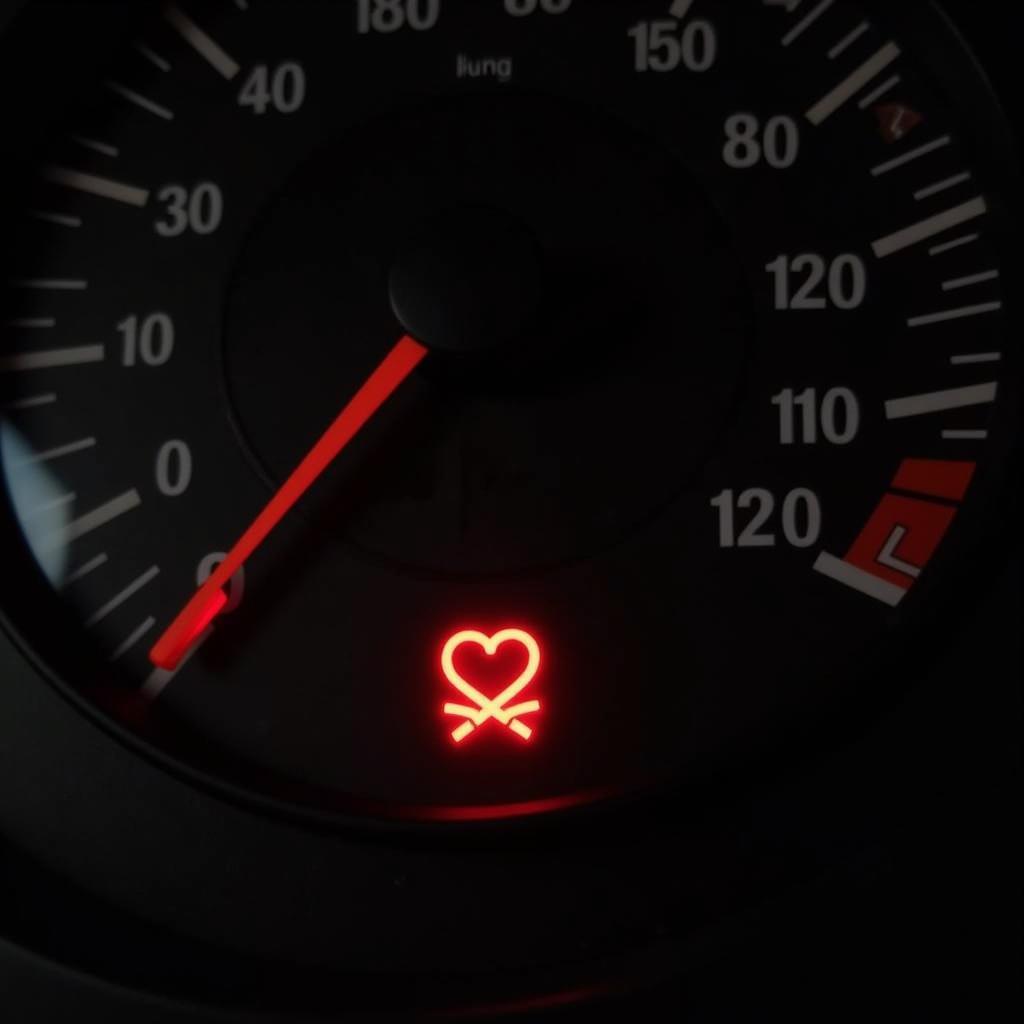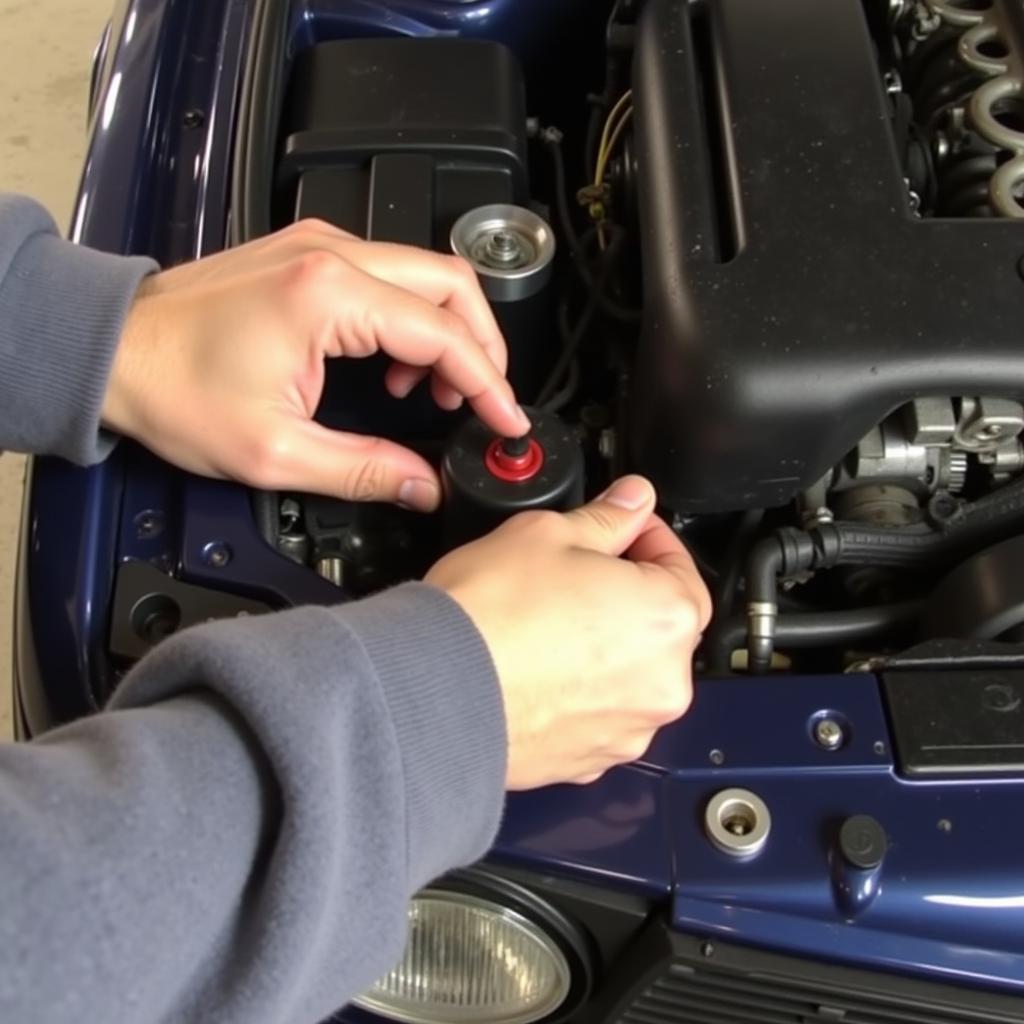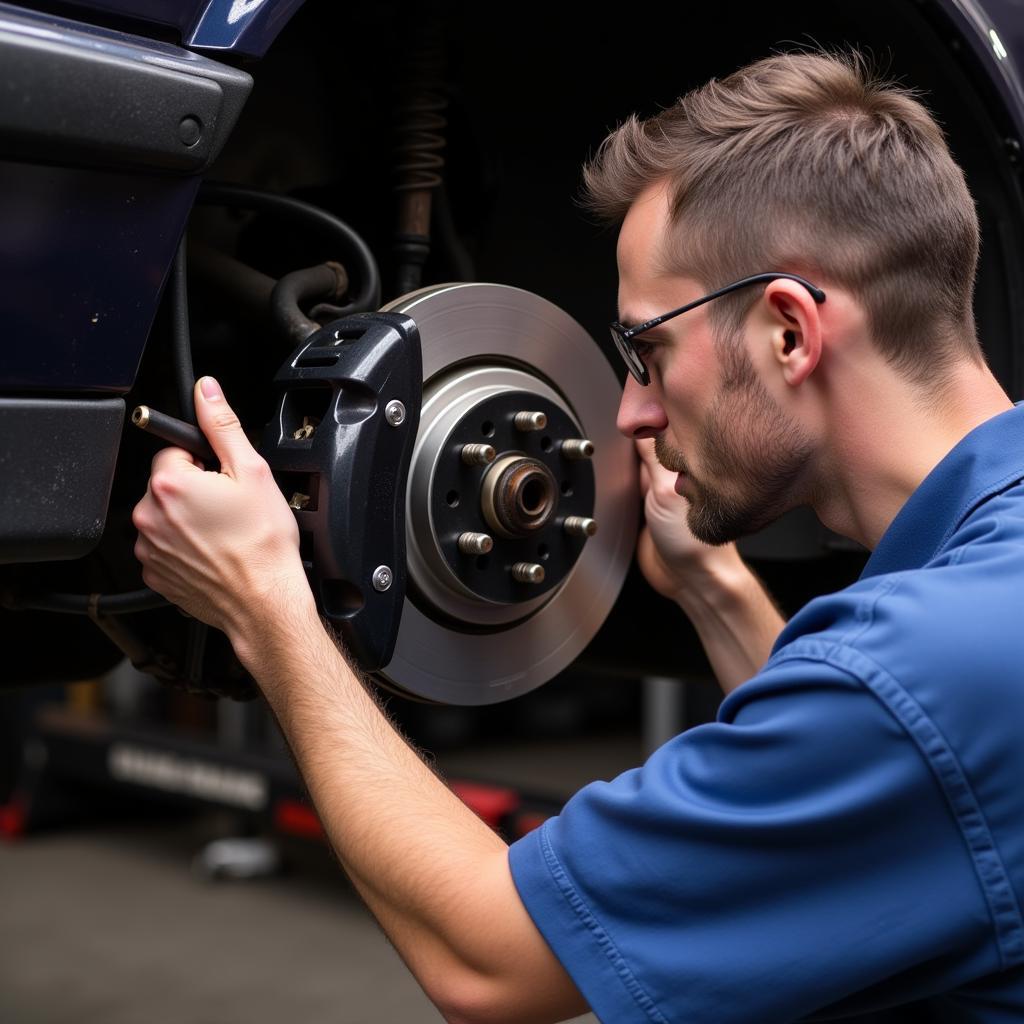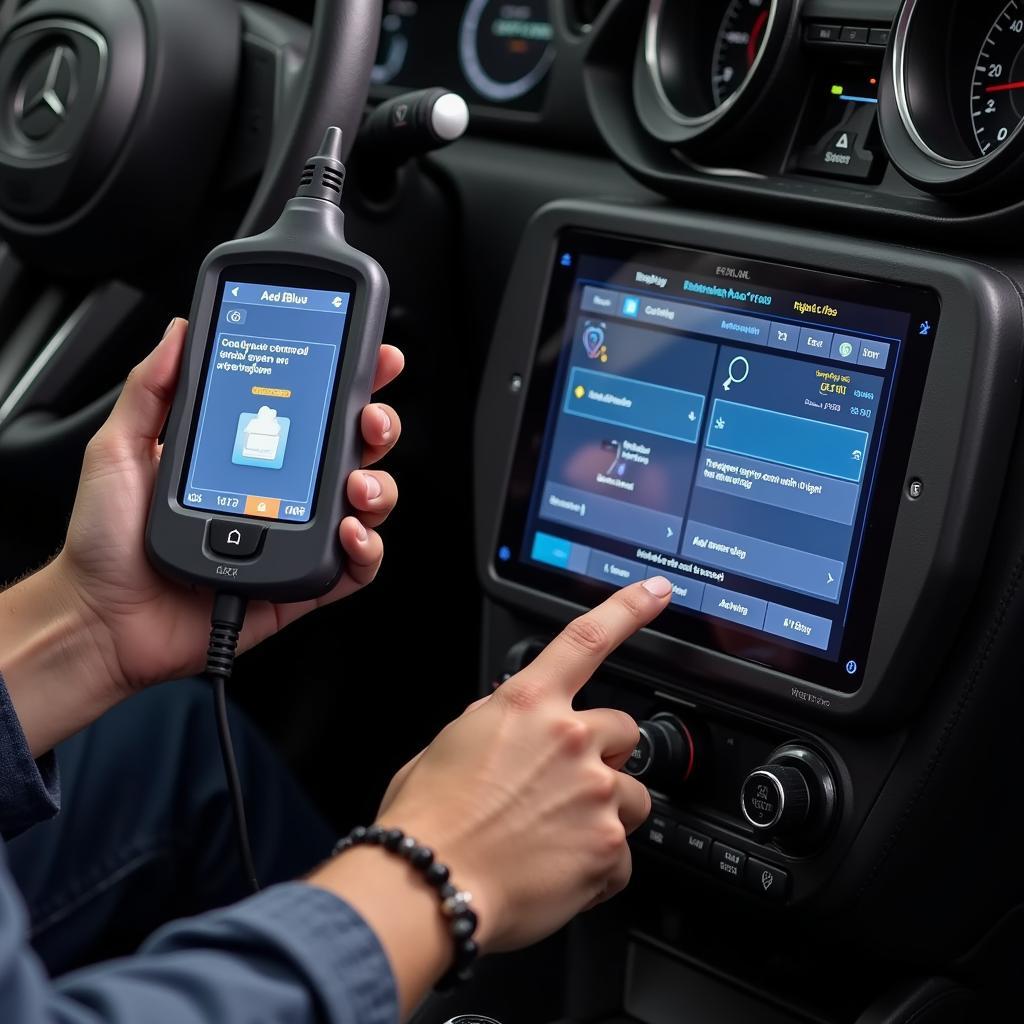The brake warning light on your BMW E30 dashboard is a crucial safety feature, alerting you to potential issues within your braking system. Ignoring this warning could lead to reduced braking performance and potentially dangerous situations. This guide will walk you through the common causes of an illuminated brake warning light on your BMW E30 and provide practical solutions to get you back on the road safely.
Understanding the BMW E30 Brake Warning Light System
Before diving into troubleshooting, it’s helpful to understand how your E30’s brake warning light system functions. The warning light is connected to several components, including:
-
Brake Fluid Level Sensor: This sensor monitors the brake fluid level in the reservoir. A low fluid level, often due to a leak, will trigger the warning light.
-
Parking Brake Switch: Engaging the parking brake activates this switch, illuminating the warning light. This serves as a reminder to disengage the parking brake before driving.
-
Brake Pad Wear Sensors: Some E30 models are equipped with sensors embedded in the brake pads. These sensors trigger the warning light when the brake pad material wears down to a certain level, indicating the need for replacement.
-
Brake System Pressure Differential: The hydraulic pressure within your brake system should be balanced. A significant pressure difference between the front and rear circuits, possibly due to a leak or faulty component, can illuminate the warning light.
 BMW E30 Brake Warning Light Dashboard
BMW E30 Brake Warning Light Dashboard
Common Causes of a BMW E30 Brake Warning Light
1. Low Brake Fluid Level: This is the most common cause of an illuminated brake warning light. Inspect your brake fluid reservoir located under the hood. If the fluid level is low, there might be a leak in the system requiring immediate attention.
2. Worn Brake Pads: As brake pads wear down, the brake fluid level in the reservoir naturally drops. If your brake pads haven’t been replaced recently, they are a likely culprit.
3. Brake Fluid Leak: Inspect all brake lines, hoses, calipers, and the master cylinder for any signs of fluid leakage. A leak can compromise braking performance and should be addressed promptly by a qualified mechanic.
4. Faulty Brake Pad Wear Sensor: If your E30 has brake pad wear sensors and the pads are nearing the end of their service life, the sensor itself might be faulty, causing the warning light to illuminate prematurely.
5. Issues with the Parking Brake System: A malfunctioning parking brake switch or a misadjusted parking brake cable can cause the warning light to stay on even when the parking brake is disengaged.
 Checking BMW E30 Brake Fluid Level
Checking BMW E30 Brake Fluid Level
Troubleshooting Your BMW E30 Brake Warning Light
Step 1: Check the Parking Brake. Ensure the parking brake is fully disengaged. If the light remains on, proceed to the next step.
Step 2: Inspect the Brake Fluid Level. Check the brake fluid level in the reservoir. If it’s low, add the appropriate DOT-rated brake fluid recommended for your E30. However, if the level is consistently low, suspect a leak and proceed to step 3.
Step 3: Inspect for Leaks. Carefully examine all brake components, including lines, hoses, calipers, and the master cylinder, for any signs of brake fluid leaks.
Step 4: Check Brake Pad Thickness. Inspect the thickness of your brake pads. If they are worn down close to the wear indicators, it’s time for replacement.
Step 5: Seek Professional Help. If you’ve exhausted the basic troubleshooting steps and the warning light persists, it’s strongly recommended to seek professional assistance from a qualified mechanic specializing in BMW vehicles.
 BMW E30 Brake System Inspection
BMW E30 Brake System Inspection
Expert Insights
“Don’t underestimate the importance of quality brake components for your E30,” advises veteran BMW mechanic, Mark Stevenson. “Using the correct DOT-rated brake fluid and investing in OEM or reputable aftermarket brake parts can significantly impact your braking performance and safety.”
“Regular brake system inspections are crucial, especially on an older vehicle like the E30,” adds Stevenson. “Catching potential issues early, such as minor leaks or worn pads, can prevent more costly repairs down the line.”
Conclusion
Addressing a BMW E30 brake warning light promptly is essential for safe driving. By understanding the potential causes and following the troubleshooting steps outlined, you can often pinpoint the issue. However, if the problem persists, seeking professional help ensures your E30’s braking system receives the attention it needs for safe and reliable performance.

